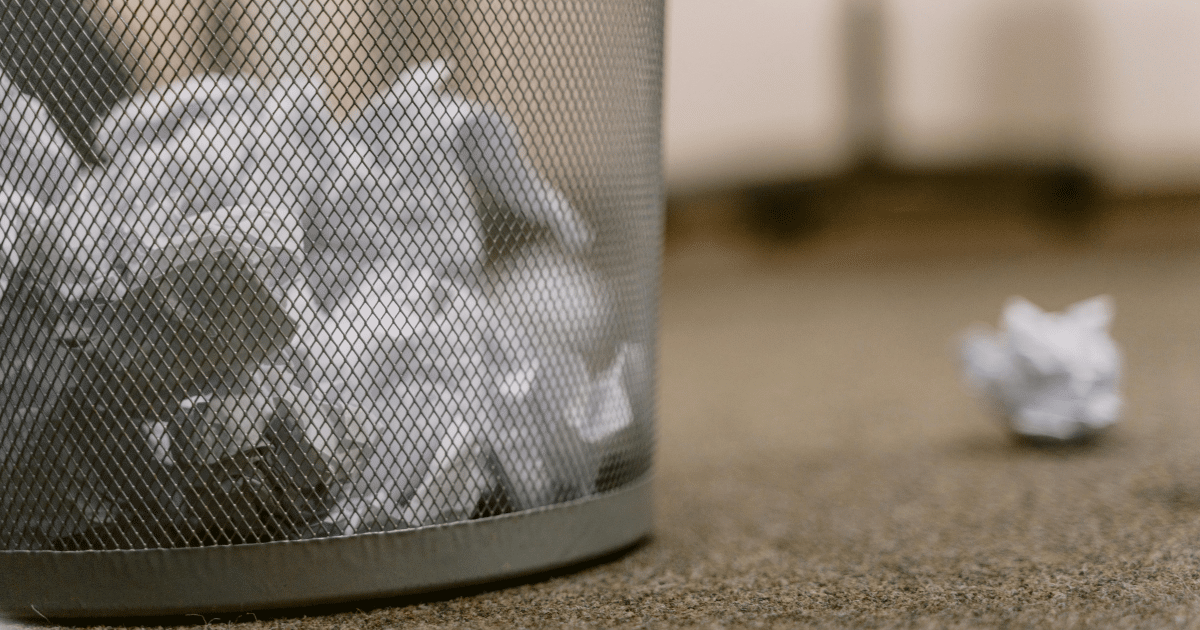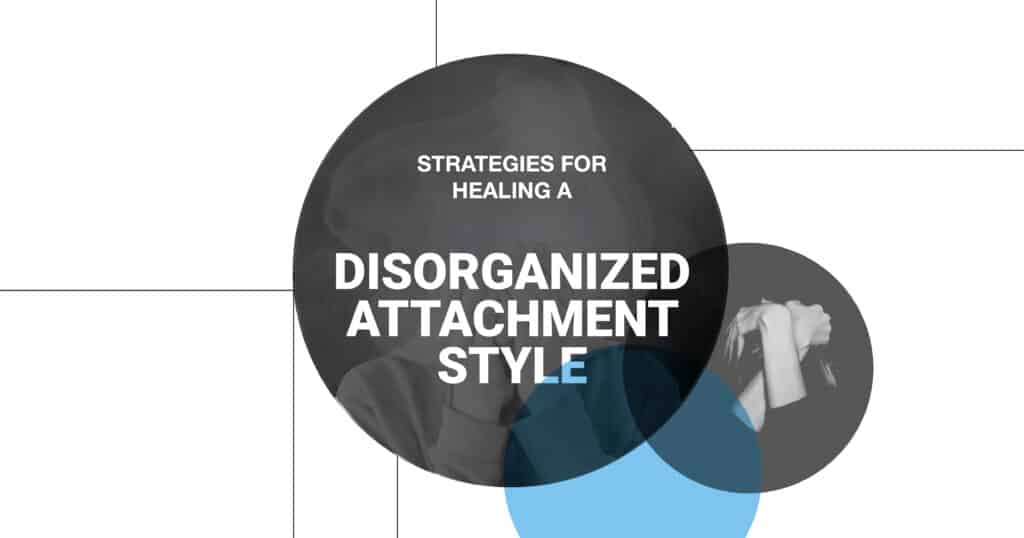Whether your attachment issues co-exist alongside mental health problems or you simply find it hard to be a good partner and friend due to inconsistency in your feelings and behavioral patterns, it is possible to overcome this obstacle and respond more adaptively whenever you have the urge to detach from the people who love you or start an argument with them.
In this article we will take a look at the disorganized attachment style and find out how a person who is persistently distressed in their interactions with their family and friends can cope with their emotions.
What is a Disorganized Attachment Style?
Disorganized attachment style refers to an attachment disorder characterized by unpredictable behavior and the occasional emotional unavailability of one individual towards others. There are four main attachment styles, and this one is by far the rarest – the person is often experiencing conflicting emotions that do not let them be at peace as well as cause distress to the people around them.
Disorganized attachment style means a person is craving a stable, healthy, and lasting relationship or friendship while being scared of what it may entail at the same time. The emotional rollercoaster they are experiencing will alienate a potential partner, a long-term spouse, or a close friend if they do not know how to respond to mood fluctuations and constant conflicts caused by these attachment issues. The anxiety in relationships usually stems from the childhood of the individual so, unfortunately, when they reach adulthood, others are not aware of their childhood trauma, abuse, or neglectful parents.
Signs and Symptoms of a Disorganized Attachment Style
It may be difficult to spot a disorganized attachment style if the inner circle of the individual who exhibits the signs of it do not take mental health seriously – unfortunately, attachment issues are often ignored especially if the person in question is causing a lot of problems with their behavior. Here is a brief outline of signs that indicate this particular type of attachment:

- Willingness to stay very close to someone or to distance yourself from society altogether.
- Emotional dysregulation that may manifest in impulsivity or angry outbursts.
- Inability to open up to others and let them know your genuine thoughts and feelings.
- Low self-confidence and negative self-image whether the individual doubts their appearance or personal qualities.
- Unwarranted fear of rejection or abandonment.
- Inconsistency and lack of clarity in relationships.
- Manifestations of anxiety and depression in stressful situations.
The Impact of Disorganized Attachment on Relationships
An adult with disorganized attachment style needs to tackle their issues if they want to build a long-term relationship with their partner, stay in touch with their friends without any hard feelings between all people involved, and enjoy a healthy relationship with their parents. While a person with this attachment style will seek deep and genuine connection with other people, the object of their affection or an individual who begins a friendship with them might be unpleasantly surprised when all of a sudden there is avoidance of closeness and fear of rejection that manifests in severe insecurity and need for validation which can be an emotional burden.
People with disorganized attachment style will have trouble if they get married and have children – the lack of trust they feel, the confused thoughts they cannot control, and the fear of abandonment is a tough situation for every individual in their family, especially kids who will follow their parent’s lead when they grow up.
Therapeutic Approaches for Healing Disorganized Attachment
Thankfully, there are ways for people to shift the unconscious behaviors that impact their daily functioning – enlist the help of a therapist to heal disorganized attachment:
| Therapeutic Approach | Description |
| Attachment-Based Therapy | This therapy modality is a great solution for an individual whose attachment issues are exacerbated by a mental health condition – use the opportunity to explore how your negative childhood experiences may have led to your diagnosis and learn to manage your symptoms better |
| Cognitive Behavioral Therapy (CBT) | In many instances, the cognitive distortions caused by childhood trauma affect the person’s self-image and do not let them stay in relationships they want because they are certain they do not deserve love and affection. CBT will help you recognize thought patterns that wear down your mental health and replace your negativity with positive affirmations |
| Eye Movement Desensitization and Reprocessing (EMDR) | A person who survived child abuse may not have processed their trauma which leads them to feel unsafe and insecure in relationships that require trust. An EMDR practitioner will guide you as you access your memories and work through your issues for a healthier mindset |
| Psychodynamic Therapy | If you want to enhance your self-understanding and increase present-moment awareness, the therapy modality in question is a good choice – you can figure out how your past changes your feelings and behaviors today and eliminate self-defeating patterns that hold you back |
Self-Help Strategies for Managing Disorganized Attachment
Therapy is not the only thing that can help you avoid an additional strain on your mental well-being and allow you to cope with disorganized attachment – incorporate the following advice into your daily routine and make a positive contribution to your treatment plan:
| Advice | Description |
| Practice Mindfulness | It is a good idea to practice non-judgmental acceptance of your feelings as well as take a break to devote a bit of time to your mental wellness. Pick a self-soothing technique that suits you best whether you do yoga, meditate, relax with the assistance of aromatherapy, or spend a few minutes every day on breathing exercises – it helps to be on your own and set the foundation for your overall health |
| Educate Yourself | Learning more about different attachment styles will help you adjust to reality much faster – read books and discover online resources where mental health specialists, their patients, and people who have never had therapy share their experiences and tips on how to overcome the problems that hamper their emotional well-being |
| Keep a Journal | One of the best ways to analyze your emotions and figure out what triggers you and adds to your distress is journaling – note the smallest changes in your mental state and interactions with others. Besides, it will be an invaluable source of information if you decide to seek professional treatment |
| Socialize | It is proven that increased social interaction will provide a person with a more profound comprehension of their emotions. Do not refuse when your family and friends invite you to attend a gathering or spend quality time together – be open to new experiences, and you can leave your attachment issues behind |
Ready to Make a Change? Contact Clear Mind Treatment Today
The emotional dysregulation people with disorganized attachment style have to deal with is a major hurdle in their personal lives. Luckily, there are reliable treatment methods and self-care techniques you can utilize to identify the root of the problem, heal your tendency to form unhealthy relationships, and thrive as a partner and friend. Reach out to Clear Mind Treatment now – our specialists will be happy to be of assistance as you start your mental health journey.

FAQs
How does fear of intimacy contribute to emotional unavailability in relationships?
When two individuals cannot connect physically, it often becomes the main issue in their relationship – the other individual will feel unfulfilled, hurt, and even heartbroken. The partners become distant, drift apart, and even break up over the lack of physical contact since it most likely means the inability of the struggling person to be emotionally intimate as well.
What are the signs of anxiety in relationships caused by inconsistent caregiving?
A person who was raised by unpredictable and emotionally distant caregivers is often diagnosed with anxiety disorder – they are afraid of rejection and failure, their self-confidence is low, they are looking forward to relationship milestones just as they are scared to accomplish goals with their partner, and they cannot stop comparing their relationship to other examples around them.
How can difficulty trusting others lead to avoidance of closeness?
It is not uncommon that an individual who was betrayed, let down, and abandoned as a child and as an adult does not want to be hurt again – in case you try to convince them they are safe, they will insist on keeping their distance and independence even if it means they are missing out on some experiences.
What role does emotional dysregulation play in fear of rejection?
A person with attachment issues may try to improve their patterns of relating to others but if they cannot control their impulsivity, anger, and anxiety, they will let the other individual know they cannot trust them, avoid confrontation, and prevent themselves from getting too close with someone to prevent further damage to their psyche.
How can someone address their fear of intimacy and work on building trust in relationships?
While holistic practices, mindfulness, and readiness to communicate with your partner every step of the way despite your fears are enough for many people, some individuals cannot overcome such a problem without the guidance of a mental health professional. If you know your intimacy problems are caused by childhood trauma or distressing events you lived through as an adult, you should resolve your issues with a therapist.








